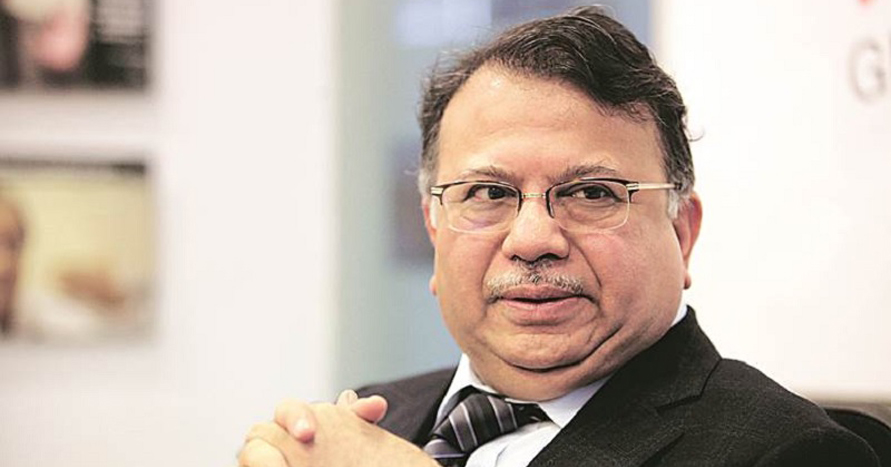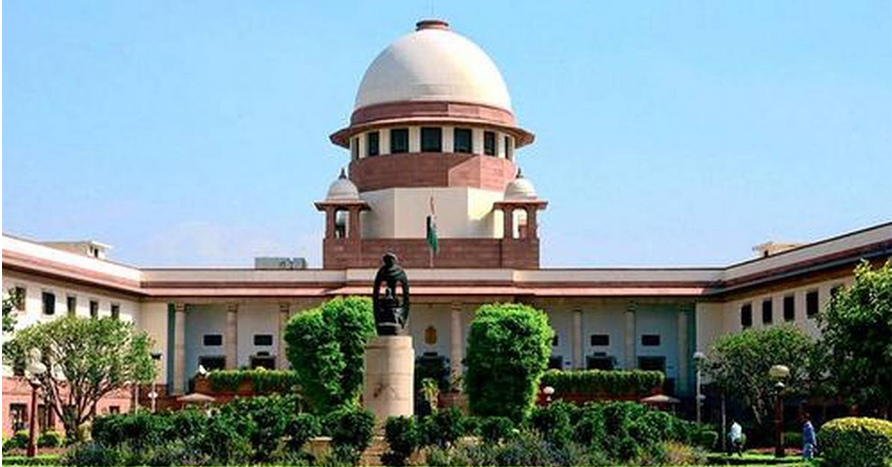Every institution that is designed to hold the executive accountable, is being destroyed
Justice AP Shah
Former Chief Justice of
Delhi High Court
Former Chief Justice of Delhi High Court, Justice AP Shah, gave the Justice Hosbet Suresh Memorial Lecture on 18th September 2020, in which he talked about how India is not living up to the principles of a liberal democratic republic.
….. continuing from the previous issue
Bail hearings under the Unlawful Activities (Preventions) Act (UAPA) are now nothing more than mere farce. With such high barriers of proof, it is now impossible for an accused to obtain bail, and is in fact a convenient tool to put a person behind bars indefinitely. It is nothing short of a nightmare come true for arrestees.
This is being abused by the government, police and prosecution liberally: now, all dissenters are routinely implicated under (wild and improbable) charges of sedition or criminal conspiracy and under the UAPA. Due to the Supreme Court judgment, High Courts have their hands tied, and must perforce refuse bail, as disproving the case is virtually impossible. As a result of this decision, for instance, a High Court judge can no longer really adjudicate and assess the evidence in a case. All cases must now follow this straitjacketed formula of refusing bail. The effect is nearly identical to the draconian preventive detention laws that existed during the Emergency, where courts deprived people access to judicial remedy. If we want to prevent the disasters of that era, this decision must be urgently reversed or diluted, otherwise we run the risk of personal liberties being compromised very easily.
This abuse of the UAPA and constant rejection of bail applications of accused as a means of silencing opposing voices can be seen most in the Bhima Koregaon cases, where mere thought has been elevated to a crime. In this matter, involving the arrests of many individuals, the so-called evidence was a typed, unsigned, undated document already in the public domain, which was taken from the devices of Varavara Rao and Gautam Navlakha, and attributed to them. The document titled “Strategy and Tactics of the Indian Revolution” was referred to in a book published six years ago. This document is also publicly available online. There is no Section 161 witness statement that has been relied upon in the matter of Sudha Bharadwaj. But as a consequence of UAPA being applied, the accused cannot even get bail. Courts cannot go into the merits of the case due to the Supreme Court judgment.
The pattern followed in these arrests are all very similar: social activists, academicians, public intellectuals, who have worked in certain parts of the country are first accused of Maoist conspiracies, then with charges of misguiding Dalits, and then under the UAPA.
Sudha Bharadwaj has been in jail for two years. Varavara Rao, a Covid-19 patient, is not allowed to get out and receive proper treatment. We hear of fresh arrests ever so often. Navlakha’s case is a classic example of how the High Courts are being discouraged from doing anything. Navlakha made an application for bail before a Delhi High Court judge, but when the matter was being heard, without informing the Court, Navlakha was transferred to prison in Mumbai. When the judge enquired as to how and why this was done, there was no response from the government. Instead of explaining its position to the High Court, the Solicitor-General took the matter to the Supreme Court, and the Court simply rejected the bail application, virtually ending the proceedings before the High Court.
Abdicating Justice : The next characteristic contributing to the Supreme Court’s decline is in the failure to perform its fundamental role as adjudicator itself. In the Kashmir case, it has practically abdicated its role as a Court!
The Court’s decision in the internet shutdown case (Anuradha Bhasin) was laudable in many respects, but failed to actually decide the matter. After ruling that the suspension of communication services must adhere to the principles of necessity and proportionality, the Court failed to apply these principles to actually decide the legality of the communication shutdown in Kashmir. In its decision of May 2020, instead of itself dealing with constitutional issues relating to Articles 14, 19, 21, proportionality and strict scrutiny, the Court merely upped and handed over the exercise, of “advising” the court and the administration on the applicability of Anuradha Bhasin in J&K and denial of 4G services, to an executive-led Special Review Committee.
This is clearly a case of misguided, and surely, constitutionally unacceptable, delegation: the executive has been asked to conduct a review of its own actions, when in fact the judiciary should have been conducting a judicial review of executive action. As expected, the Review Committee rejected the representation, leaving the entire J&K population without 4G services for an unforeseeable future (it has already been over a year!). Should this denial of the fundamental right and access to internet be ignored so unsubtly? To use Senior Counsel Arvind Datar’s phrase, this is a case of justice having been “outsourced”, which is arguably tantamount to justice being denied.
There is also a pattern of judicial evasion being followed by the Court in the Kashmir cases: when petitioned as to how the internet shut down was affecting the public health delivery system in J&K, the Supreme Court told the petitioner to approach the High Court to avail the appropriate legal remedy. The over 1.3 crore population of J&K is suffering, with health, education, business and economy all operating at a loss, because of the executive’s internet shutdown. The Supreme Court seems to simply not want to deal with real-world problems at all.
Contrast this with how other jurisdictions have dealt with conflicts between individual liberty and national security, as described by Mr Datar. In Liversidge v Anderson, Lord Macmillan famously observed that “The fact that the nation is at war is no justification for any relaxation of the vigilance of the courts in seeing that the law is duly observed.” After the September 11 attacks, the United Kingdom enacted a law to detain and deport non-UK citizens, if there were suspected terror links. The law was struck down in A v. Secretary of State for the Home Department, on grounds including discrimination, with the courts drawing a distinction between the subject of national security being a matter of political judgment of the executive and Parliament, and the issue of whether individual rights were violated being the subject for judicial scrutiny. Elsewhere, the US Supreme Court struck down the government Military Commission for trying detainees at Guantanamo Bay for violating the Uniform Code of Military Justice and the Geneva Conventions in Hamdan Vs Rumsfeld. Note that Hamdan was Osama Bin Laden’s chauffeur, but the Court did not flinch. Similarly, when the Iranian Bank Mellat was suspected to be funding entities supporting Iran’s missile program, and the UK Treasury issued a directive prohibiting dealings with the Bank, the UK Supreme Court, in Bank Mellat Vs Treasury, revoked the directive for failing to balance the rights of the bank and the interests of the community. Surely, the Indian Supreme Court should have taken a leaf out of the books of its peer institutions in the US and UK, and applied its own mind in such matters.
Master of the Roster : That the judiciary is failing spectacularly to remain an independent institution is evident. That the executive is in fact responsible for this is also an open secret. How the executive is doing this is also well known. There is no need to expend energy in packing the Supreme Court with pro-government judges. Finding over 30 judges who think alike would anyway be difficult, if not impossible. The combination of opaque systems like the “master of the roster”, and a certain kind of Chief Justice of India, and a handful of “reliable” judges, is sufficient to destroy all that is considered precious by an independent judiciary. Of course, this is far from being a hypothetical scenario, and is, in fact, playing out in India right now. The truly independent and competent judges in the Court have been relegated to adjudicating private disputes, and are considered inconsequential. Many commentators have already pointed out how the last three CJIs all used the powers anointed upon themselves via the “master of the roster” to entrust politically sensitive and important matters to benches involving the recently-retired Justice Arun Mishra.
There is a tendency to view the threat to judicial independence in India as emerging from the executive branch, and occasionally the legislature. But when persons within the judiciary become pliable to the other branches, it is a different story altogether. Today’s situation was foreseen many decades ago by Chief Justice Y.V. Chandrachud, when, in 1985, he observed, “There is greater threat to the independence of the judiciary from within than without…” All the sermonising in the world is of no use without any real changes in the way things work.
How Democracies Die: In their book titled, How Democracies Die, Steven Levitsky and Daniel Ziblatt, write of how “most democratic breakdowns have been caused not by generals and soldiers but by elected governments”. They document the many instances of how “elected leaders have subverted democratic institutions” across the world. This subversion is carried out by the constitutional sanction of the ballot box, and even with approval from the legislature and the judiciary. Throughout, there is always the assurance that the democratic wheels are still turning. Levitsky and Ziblatt call the leaders who thrive in such situations “elected autocrats”. Such elected autocrats weaponise institutions, to use them as political ammunition. They compel the media and the private sector into silence, and they redraft rules to suit their interests over those of their political opponents. Critical voices still rise up in the backdrop but those who dare to question the powers that be end up at the receiving end of all kinds of trouble – they are charged with making seditious remarks, or evading taxes, or some such thing. In this way, they use “the very institutions of democracy … to kill it”.
To put it bluntly, this is what is happening in India today. In the face of all this, the one institution which has the capacity to turn the tide is the judiciary. Unfortunately, it seems to have lost its way. There was a period in history, during the Emergency, as well, when the Supreme Court failed the nation, but it realised its follies and returned to its natural path in course of time. Now, too, we have many judges and exemplary lawyers in practice who are sincere and committed to constitutionalism and to the rule of law. I expect they will rise to the occasion. The occasion is now. More than 70 years ago, in the Constituent Assembly, Nehru had said that we needed judges of the “highest integrity”, who would be “[persons] who can stand up against the executive government and whoever might come in their way.” I am hopeful that we will once again be able to see judges like these thrive in India.
Source: ‘www.thequint.com’
(Concluded)



